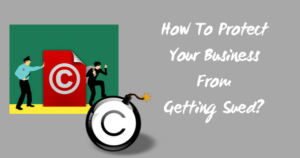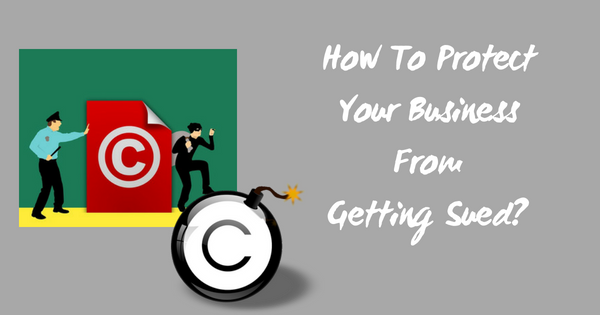Dealing with a lawsuit is extremely damaging for small businesses even if you have legal counsel on deck, however, with proper knowledge, it’s far better to avoid getting sued in the first place.
 So how can you avoid getting sued? It’s simple! Learn the common things that easily make businesses getting sued. Here they are:
So how can you avoid getting sued? It’s simple! Learn the common things that easily make businesses getting sued. Here they are:
1. Dangerous Products
The easiest way to avoid getting sued for this is to avoid products that can be dangerous to people. Anything that includes blades, toxic ingredients, heating elements or sharp edges is going to have a higher risk over simple items.
If your product hurts someone, then they could potentially sue you for damages. This is particularly relevant in the USA which doesn’t have a public healthcare system, and the USA is the biggest online marketplace for Etsy, Ebay, and Amazon.
This is why most marketplace requires that, if for 3 months, your sales exceed $10,000 in revenue, you are required to get insurance for at least $1,000,000 in coverage.
This also has the advantage that insurance for “simple items” is going to cost less than for riskier items. If you start out with a simple, less risky item, you’ll also be able to lower the cost of insurance for future “riskier” items by consolidating insurance (the more items you have insured, the cheaper it usually is to insure them as there is a discount).
2. Trademarks or Copyrighted Images
On one of my posts before, one Etsy store owner, who asked not to be named for fear of further legal action, received a trademark infringement warning in relation to a T-shirt featuring a Taylor Swift lyric.
Check the link here to know more about the issue.
Her song lyrics are not the only thing that’s protected but also her name, logo, and official imagery is all trademarked.
So how does Etsy reacts to this issue?
Etsy said: “Because of privacy and legal concerns, we can’t verify specific information about who contacts us. However, I can share more information about our copyright and intellectual property policy:
When a seller opens a shop and lists an item on Etsy, they are agreeing to our terms of use, including trademark guidelines, and copyright and IP policy. We take intellectual property and copyright concerns very seriously, and we comply with the DMCA and remove items when we have proper notice. When we are notified about allegedly infringing material, we act swiftly and in compliance with our policy, which you can find here.”
On the other hand, when you buy supplies from other countries, you are going to have access to a lot of products containing copyrights and trademarks issues.
Internationally, copyrights are usually honoured. However, they are rarely enforced which is why infringement is so rampant (despite being illegal). The reason it is so rarely enforced is because culturally in countries like China, if something is easy to copy and distribute to the masses, this is considered a good thing to do. In the West, the cultural perspective is different: we view that the rights of the individual are more important.
To avoid getting sued, do not sell items or use products breaking copyrights/trademarks. Your products will be taken down off of Etsy, and/or you are in high risk of getting sued.
3. Patents
Avoid creating items that are similar to patented products.
A patent is a set of exclusive rights granted by a sovereign state or intergovernmental organization to an inventor or assignee for a limited period of time in exchange for detailed public disclosure of an invention.
When creating a new handmade product, do your research first! Check if there are any other similar items on Etsy, Ebay, or Amazon listed. If the item has unique features and there are no other products like it listed, there is a good chance that it is patented. You can then go to the website owned by the company listed as the seller and see if they have any patents on their site. Usually, they’ll have them listed very clearly. You can then go to Google patents and check to see if the patent is still active.
I hope this post will help you to avoid getting sued. If you have tips or experiences regarding this matter that will help your co-sellers, please don’t hesitate to share it in the comment box below for others to see.
- DIY Chicken Wire Jewelry Holder - June 27, 2022
- Jewelry Designer Manager Alternative - December 8, 2019
- 3 Tips To Immediately Boost Your Sales Today - May 12, 2019

